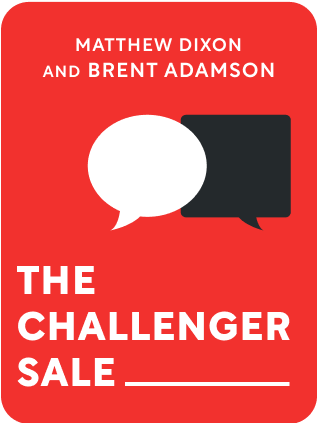

This article is an excerpt from the Shortform summary of "The Challenger Sale" by Matthew Dixon and Brent Adamson. Shortform has the world's best summaries of books you should be reading.
Like this article? Sign up for a free trial here .
What is the difference efficiency and effectiveness? Which one should you strive for?
The difference between efficiency and effectiveness is that efficiency is how you improve what you’re already good at. Effectiveness is how you innovate to address the unexpected. So now that you know the difference between effectiveness and efficiency in management, which should you focus on? In The Challenger Sale, the authors argue that sales managers should focus on effectiveness. Here’s why.
The Difference Between Effectiveness and Efficiency in Management
In the sales manager’s world, the roles of resource allocation and sales innovation can conflict.
But what is the difference between efficiency and effectiveness? Resource allocation is efficiently managing limited resources through better territory management, deal qualification, and sales process compliance. While resource allocation focuses on efficiency, sales innovation focuses on effectiveness.
A manager focus on effectiveness has almost twice the impact of an efficiency approach.
In addition to the difference between efficiency and effectiveness in management when it comes to impact, they also have fundamental differences. Efficiency involves improving at what you’re already doing as a matter of routine. This works in an environment of traditional, straightforward product selling, where most deals are the same and customers behave predictably. Effectiveness involves innovating and collaborating to address the unexpected in a sales environment where there are many unknowns. Effectiveness takes precedence over efficiency.
However, in a recent survey of frontline managers, most managers said their current environment is dominated by an emphasis on efficient execution. Almost none agreed that “leadership empowers managers to set their own course.” But they cited empowerment or freedom to make decisions as the most important factors for them to be successful.
It takes time to change, but there are immediate things companies can do to equip sales managers to be more innovative at the deal level. So what is the difference between efficiency and effectiveness? The answer can help mangers focus on efficiency and innovation.
Effective Coaching Is Good Business
The difference between efficiency and effectiveness is also present in sales coaching. Research shows that effective coaching can significantly boost the performance of average reps.
Specific research findings include:
- Improved coaching of weak performers results in only nominal performance improvement. If someone is a bad fit for the job, better coaching won’t fix the problem.
- Improved coaching of star sales reps also is likely to have little performance impact. However, quality coaching improves their retention.
- Improved coaching can substantially boost the performance of average reps. With quality coaching, median performers could improve as much as 19%. Improving coaching effectiveness from weak to strong would result in a performance gain of 6 to 8% for core reps.
This means effective coaching has the potential to greatly improve performance in a complex sales environment. Coaching can mean the difference between hitting or missing sales goals for the majority of your reps. The key is to focus the bulk of coaching efforts on the core performers rather than the lowest or highest performers.
Besides boosting sales performance, coaching is a big factor in employee retention and discretionary or extra effort. Good coaches make people want to stay; bad coaches (and bad managers) are demoralizing and drive people away. This applies regardless of the employee’s performance level.
Guidelines for Effective Coaches
You may wonder “What is the difference between efficiency and effectiveness?” when it comes to sales coaching. Managers should focus on coaching effectively. To coach effectively, managers need a standard to coach to.
One company created a coaching guide or cheat sheet for managers that it integrated into the sales process. It provided questions for managers/coaches to ask reps at each stage of the sales process to help them achieve the objectives of that stage.
Typically, managers focus on outcomes rather than behaviors in coaching conversations.
For instance, a manager might say to a rep, “Your conversion rate is down. What’s the problem?” This is “spreadsheet coaching”—it focuses on business outcomes, not behavior. In addition, it’s a one-size-fits-all critique.
In contrast, good coaching focuses on behaviors (what the rep is doing), not outcomes. For instance, in the pre-call planning stage, a coach might ask the rep: “What business problem are you planning to focus on with this customer? How new will this insight be to him? Why hasn’t he already figured it out?” This desire for innovation is part of the difference between effectiveness and efficiency in management.
Appendix A provides an excerpt of the authors’ coaching guide for Challenger selling. The full version is available as a free download here.
The difference between efficiency and effectiveness may not always be clear, and at certain points, you’ll definitely want to strive for efficiency. But learning the difference between effectiveness and efficiency in management can help you be a better manager.

———End of Preview———
Like what you just read? Read the rest of the world's best summary of Matthew Dixon and Brent Adamson's "The Challenger Sale" at Shortform .
Here's what you'll find in our full The Challenger Sale summary :
- Why the best salespeople take control of the sale and challenge the customer's thinking
- How to package your company with a key insight to spark an "a-ha" moment
- How to get the organizational support you need to maintain your sales edge






